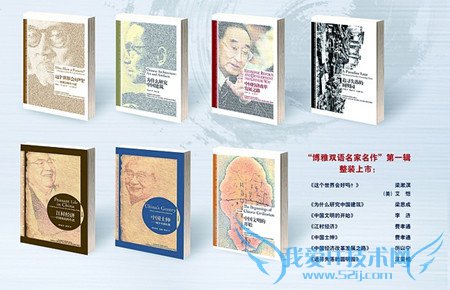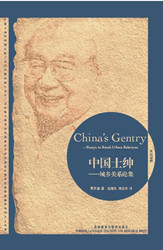��ӭ������52ijӢ��������������С��Ϊ�������Ӣ��֪ʶ�ǣ���������˫��������������Тͨ���й�ʿ������������������ϸ�ķ�����
������˫��������������Тͨ���й�ʿ������

�й�ʿ�𡪡������ϵ�ۼ�China��s Gentry��Essays in Rural-Urban Relations
����飺��Тͨ���������ѧ�ҡ�����ѧ�ҡ�����ѧ�ҡ�����ң��й����ѧ������ѧ�ĵ����֮һ��
���ݼ�飺��ТͨӢ�Ŀ��������ϱ��Ķ��й�ũ����й������������������У���ͳ��������˺�ʿ������ã������ͳ���֮��Ĺ�ϵ������ʶ�й���ͳ���ġ����ȶ��ṹ��������Ҫ���壬���������й����������Ĺؼ���
Chapter One��һ��
The Gentry and the Imperial Powerʿ�����Ȩ
The term ��gentry,�� shen-shih, refers to a class of persons with a definite position and definite functions in the traditional society of China. Here, by ��traditional society,�� is meant the period after the breakdown of feudalism and the unification of the empire under a centralized monarchical power not long before 200 B.C. The development of the gentry class has a history; only through this history can we understand its characteristics. ��ʿ������ʣ�ָ�������й���ͳ�����ռ��һ����λ������һ�����ܵ�һ���ײ㡣������ν�ġ���ͳ��ᡱ��ָ�ٽ���Ԫǰ3 ����ʱ�⽨�ƶȽ���֮�������뼯Ȩһͳ���µĵ۹�ʱ�ڡ�ʿ��ײ����������ķ�չ��ʷ��ֻ��ͨ����һ��ʷ�����Dz����˽���������
The class that is here called gentry is also sometimes referred to as shih ta fu, ��scholar-official.�� Actually the gentry class, although closely linked with the group of scholar-officials, should be distinguished from it. To be born into a gentry family did not necessarily insure that one became a scholar or an official in traditional China. Under feudalism the situation was different. At that time the gap between the nobles and the commoners was great. Shih and ta fu, although they were the bottom of the hierarchy of the ruling class, were still a part of that class and as such possessed real political power. But after the breakdown of feudalism political power was no longer portioned out but became concentrated in the person of one man, the monarch. In order to carry out his administrative functions, the monarch required assistance. This was given him by the officials. The officials then were no longer relatives or members of the ruler��s own family but rather employees��the servants, or tools, of the monarch. ����������ʿ��ײ���ʱҲ����Ϊ��ʿ��� ��ʵ���ϣ���Ȼʿ��ײ���ʿ���Ⱥ���������������Ӧ���������ֿ�����������ʿ���ͥ��������ȷ�����˽���һ�����Ϊ�й���ͳ����е����˻��Ա���ڷ⽨ʱ�������α㲻��һ�����⽨ʱ���Ĺ����ƽ��֮������в�����Խ�ĺ蹵�� ��ʿ�� �͡���� ��Ȼ����ͳ�ν��ȼ���ϵ����ײ㣬������������ͳ�ν���һ���֣���ӵ������������Ȩ�������⽨�ƶȽ������Ȩ���ٷ�ɢ�����Ǽ��������ͳ����һ�����Ϊ��ʵʩ���������ͳ������Ҫ���������ָ������ɹ������ṩ�ġ���ˣ�����Ĺ���������ͳ���ߵļ����Ա�����ݣ��������Ĺ�Ӷ�������˻���ͳ�ι��ߡ�
After the breakdown of feudalism there was another important change. The throne became the object of capture by the strong, by the hunters after power. Under feudalism, in which political power was distributed to relatives and kin, anyone not born into a noble family was a common man who had no chance of reaching the throne, of touching or even of seeing the divine paraphernalia of monarchy. No more than a woman can change into a man could a common man become royal. But, when feudalism went, anyone could become emperor. Thus political power became an object of struggle. This is illustrated by the story 25told by the historian Ch��ien Ssu-ma of Xiang Yu, who during the Ch��in dynasty (221�C206 B.C.), in watching an imperial procession, said to his friend, ��This I can seize.�� Since that time the struggle for political power has never ceased. Political power in the eyes of the people has become something precious to be sought after, an enterprise for large-scale entrepreneurs.�⽨�ƶȽ����������һ��Ҫ�ı仯����Ȩ��Ϊǿ�ߡ�Ȩ�����߾��������Ŀ�ꡣ�ڷ⽨�ƶ��£���Ȩ�����ͳ���ߵ����ݺͼ����������ڹ����֮ͥ�������ƽ��������Զû�л��������λ��û�л��ᴥ����������ʥ�þߣ����������Ļ���Ҳû�С�ƽ��Ҫ���Ϊ���ҵij�Ա����Ů��Ҫ�������һ��������ܡ����ǣ��⽨�ƶȽ�����κ��˶��п��ܳ�Ϊ�ʵۡ�����������Ȩ���ͳ�Ϊ��������Ŀ�ꡣ��ʷѧ��˾��Ǩ����������һ�����£� �س�����Ԫǰ221 �ꡪ��Ԫǰ206�꣩ʱ�������ڹۿ��ʼ��ж�ʱ����������˵�� ���˿�ȡ����֮�� �������Ժ���������Ȩ���Ķ���������û��ֹͣ��������Ȩ�������ǵ������ѳ�Ϊ������ȡ�ı�����Ҫ���������ľ������
Unfortunately, since the breakdown of the feudal structure in China, political power has no longer been transmitted permanently in certain families, and up to the present no peaceful means of attaining it has ever been found. We continue to be convinced that the way to gain political power is through ��taking up the stick�� and fighting civil wars. Those few who emerge victorious in this struggle become emperors; the defeated become bandits. So we have had a succession of tyrants. A few people rule the mass. The nature of this despotic monarchy is not changed by the handing-on or relaying of power. In England, when a monarch was killed, monarchical power itself received a blow. Changes of monarchy led in time to a growth in the power of the people and to a government monarchic in name only. But, in China, blood flows from the people��s veins, while those who attain the throne are but a few fortunate adventurers, like Liu Pang, the first emperor of the Han, who was born a lowly peasant, or Chu Yuan-chang, the founder of the Ming dynasty. When we study official versions of Chinese history, we find presented to us a continuous line of dynastic descent; but we should not forget that the authority of these rulers was continuously challenged by civil wars and unscrupulous adventurers. ���ҵ��ǣ��й��⽨�ƶ����ų�������Ȩ����Ȼ����ר��һ�ա�����һϵ�ˣ����ǵ����ڻ�û���ҳ�һ����ȡ��Ȩ�ĺ�ƽ��ʽ������һ˵���ȡ��Ȩ���������ˡ��ҸͶ��𡱵���ս�ֶΡ���������ķ�ʽ�£���Ȩ����ˡ�����Ϊ��������Ϊ�ܡ��Ķᱦ��������ȥ���Ա��ױ������Ǽ�������ͳ��������������ר�ƵĻ�Ȩ��û������Ȩ�Ĵ��кͽ����з����κ������ϵĸı䡣���Dz���Ӣ������ɱ��һ���ʵۣ���Ȩ������һЩ����Ȩ̧��һЩͷ������һ���ʵۣ���Ȩ�ּ�����һЩ����Ȩ��̧һЩͷ������˸������ʵۣ�ȡ���˻�Ȩ���� ���ǣ��ڴ�ͳ�й�ֻ�С�ȡ����֮���Ĺ��£������������Ѫ���õ�������ȴ���������˵� ����å�� �����²�ũ������ĺ��������ʵ�������������ʵ���Ԫ谵�һ��������ǡ��ڹٷ�����ʷ���ϣ���Ȼ����һ����е���ͳ������ʵ�ϣ���С��ģ����ս�����ɵ���ð���߿����Ǿ���������ʷ�����飬������ս��ͳ���ߵ�Ȩ����
To struggle for political power by violence is dangerous. If a man succeeds, he may become emperor; but, if he loses, he will be killed, and not only he himself but his whole family and clan. When he is challenging the established emperor, he is called a bandit and rebel, and the might of the army is directed against him. Moreover, the empire gained by violence may be lost by violence also. Twice in history, according to tradition, emperors tried to give up their power to other men who they thought would make better rulers. But those to whom the power was offered did not want it. They preferred to run away rather than to take on the responsibility. We do not know how far these two emperors were sincere in their desire to give up their power and to what extent this action was no more than a gesture or a piece of complicated political intrigue. There is no question of the fact, however, that in all of Chinese recorded history there is not a single case of voluntary abdication from the throne. Those abdications which did take place were forced. ��The empire that was won on horseback will be lost only on horseback,�� as the popular saying goes.������������Ȩ��Σ�յ��¡��ɹ�Ȼ���Գ���������ֻ��һ�����ǵ�һ�������һ������塣���������Ļʵ������սʱ�����ͳ�Ϊ�ܷ˻��������ӻ�������������ң�ͨ��������������Ȩ����Ҳ��������ɥʧ����ʷ�����й����Σ����մ�ͳ���ʵ���ͼ����Ȩ�ø�����Ϊ�Ǹ��õ�ͳ���ߵ��ˡ�������Щ�˲�����õ���Ȩ����������Զ�����Ը�縺���Ρ������ӵ�֪����λ�ʵ��ó���Ȩ�ij����ж��Ҳ������ں��̶ֳ��ϣ��ⲻ����һ����̬���Ǹ��ӵ�������ı��������һ����ʵ�����ϣ��й��м��ص���ʷ�У�û��һ���ʵ�������λ�ó���Ȩ�������й���λ�����ӣ������dz��ڱ��ȡ����Ե��������ϵ����£���ֻ��������ʧ���¡�
To seek to become a monarch is to risk one��s life. The heir to the throne must uphold his succession. The emperor, who should be merciful, may pardon all other crimes but not the crime of attempted usurpation. That is the most terrible thing that can be attempted under heaven. To anyone who reads the records of the beginnings of the Ming dynasty, the account of tortures applied to those who menaced the throne sounds like an account of progress through hell. I was told that the models of the ��eighteen hells�� found in district Buddhist temples are reminiscent of what was really done in the Ming dynasty. The threat of torture was the emperor��s protection. I remember once as a boy calling out in play, ��I am the emperor.�� My grandmother stopped me at once, saying, ��You must never say that.�� This was not superstition or overcaution on her part but a recognition of a real danger in rash speaking. According to tradition at least, emperors used to have those children killed whom fortune-tellers foretold would one day become monarchs.�뵱����ʵ������������ȥð�ա���λ�̳��˿϶�Ҫ��ס��̳�Ȩ����Ϊ�ʵ�Ӧ���ʴȣ����������������������У���Ψ�����ܶ�ı����Ȩ��������ı�������������µ��¡��κζ�������������ʷ���˶�֪����������д�Ķ�ı������ʩ�ӵĿ��̷·����ڵ����з�����һ���������ڳ��������������ġ�ʮ�˲������������˵��дʵ�ģ�����ʷ�ı걾�����̵���в���ǻʵ۵ı���ɡ���ǵ�Сʱ����һ��������ˣ�д���һ�䣺 �����ǻʵۣ� ����ĸ��æ��ֹ��˵�� �����Dz���˵�ģ� �������������ţ�Ҳ�ǹ���С�ģ�������ʶ���ſ�һ�仰�������ʵ�ʵ�Σ�ա��������մ�ͳ�������ʵ۳������Щ��������������������ʵ۵ĺ���ɱ����
But this threat of violence has never really given effective protection to monarchical power. As Lao-tzu says, ��When one does not fear death, how is it possible to threaten a man with death?�� When it is possible to gain political power through violence, the throne is tempting. Though the brutality of those in authority may silence the majority, repression will never be entirely successful. The magnitude of the stakes, an imperial power which could be used to realize any whim, could not but make the effort attractive in spite of dangers. On the one hand, there were those who were willing to gamble with their lives; on the other, there were those who submitted quietly. One may ask, then, what it was that decided on which side a man should be. ���ǣ���������в��û��������Ч�ر�����Ȩ�������������ԣ� ����η�����κ�������֮�� ����ͨ��������ȡ��Ȩ��Ϊ����ʱ����Ȩ�ͱ���쳣���ˡ���Ȼͳ���ߵı��п���ʹ�����˱��ֳ�Ĭ����ѹ����ԶҲ������ȫ��Ч������ȡ����ר�ƻ�Ȩ�£���Ȩ��������ıȡ˽�˵��Ҹ������Ҳ���Դ�˳��Ľ����Ϸֳ�����ð��踵��˺Ͳ���ð��踵��ˡ���ô�����˾ͻ����ˣ����벻�������������������������أ�
Under monarchical rule the people had only duties without rights; the emperor��s word was law. If he wanted to build a great palace, an imposing tomb, or a grand canal, he ordered it done without regard for the people. If he wanted to expand the boundaries of his kingdom, he commanded his army to mobilize regardless of whether the people liked it or not. The paying of taxes, the conscription of soldiers��these were burdens for the people to accept without compensation. Those who have lived under despotic monarchical power will understand Confucius�� saying, ��A brutal monarch is even worse than a tiger.�� This policy of despotism more fearful than a tiger has had a long history in China. So we say, when the tiger comes out from his cage, the frightened people escape to the Liang hills.��ר����Ȩ֮�£�����ֻ�������û��Ȩ�����ʵ۵Ļ����Ƿ��ɡ��ʵ������Ҫ����һ�����Ĺ�������Ĺ��������һ�����˺ӣ�������˼����գ�ֻ��������������ȥ����������뿪���������ͻ��������ȥ��Ա����������Ը��Ը�⡣��˰�ͱ��۶��ǰ������Խ��ܵĸ���������û���κεIJ����������ڱ�Ű��ר��ͳ���µ����Ǻ�����������ӵġ��������ڻ�Ҳ����仰�����ֱ��ϻ������µı������й��кܳ�����ʷ����������˵���������ϻ����������ͻ��ŵ��˱�����ɽ�ˡ�
Upon all who are unarmed, we may say, the threat of political tyranny falls with equal weight. Yet in this, too, there have always existed differences. The richer folk could afford to pay for security. In the Chinese traditional pattern conscription, for example, could be bought off. The breaking-up of a family such as is described in ��Old Poem�� could never have happened in a rich family. Thus it was that people from this class became political adventurers.ר��ͳ�ε���в��������������������������������һ���ģ�������Ҳ�в�ͬ�����˿�������������ȫ�����磬�Ŵ��й��������ƶ���������������������۵���������ʫ����д��֧������ļ�ͥ�������Ǹ��˼ҡ����ǡǡ�dz���ƶ��ײ���˱���������ϵ�ð���ߡ�
The possession of riches or the lack of them was what was important for making some acquiesce and others rebel. ��Man fears to be distinguished as a pig fears to be fat.�� When the political tiger attacks, the man who is rich will have a greater difficulty in escaping than the man without property. In such a case property becomes a burden. Propertied families developed great alertness in watching the behavior of the tiger. The poor man who has become desperate may rebel, become a bandit in the mountains, and even, in time, challenge the royal authority itself. But a man of property and family cannot easily do this. He must find some way to avoid the attack of the tiger. Unfortunately, as the old saying goes, ��From the water��s edge, all land is the emperor��s; under the heavens all are the emperor��s men.�� At that time travel was not easy; one could not run away to Washington or Brazil, nor was there any International Settlement in a treaty port, nor even any Hong Kong. Physically there was no escape. Perhaps this is not quite true, after all, because we know that from early times certain individuals were able to escape to Korea or Japan. But the ordinary man had to find some means of protection within the structure of society itself. �Ƹ���ռ�к��ѷ��ǵ��³�Ĭ�ͷ�������Ҫԭ�� �����³�������׳�� ���������ͻ�������ʱ�����߱����˸������������ѣ���ʱ��Ƹ�����˸����������˼����ڶԡ��ϻ������Թ�ɫ��������������Ҳ����ҸͶ��𣬻������Ϊ�ܣ���������ֱ�����Ȩ������ս��һ���м��ҡ��вƲ����˲���������ô�����������跨���ѡ��ϻ����Ĺ��������ҵ��ǣ�����������ԣ� ������֮�£�Ī������������֮����Ī�������� ����ʱ���ſɲ����ף������ܵ���ʢ�ٻ������Ҳ���������κ�һ��ͨ�̿ڰ�Ѱ����ʱ��ѣ�����Ҳû���������ط����ڵ����ռ����������ӵġ���Ҳ��������ȫ��ˣ��Ͼ�����֪����Щ����������ӵ��˳��ʻ��ձ������ǣ�һ����ֻ�������е����������Ѱ�����ұ�����;����

�༭�Ƽ���
��ТͨӢ��ԭ�����й�ʿ���״ι��ڳ���
����ʿ��ײ����й���ͳ���Ĺ���
����й����ġ����ȶ��ṹ���༭�Ƽ���
�����徭�á���Ӣ�����հ棩
��Тͨ������������־�ܣ��룩
�����ѧ���о�������
- �����б����������۽������ѱ�����˿���������������վͬ����۵��֤ʵ��������
-
